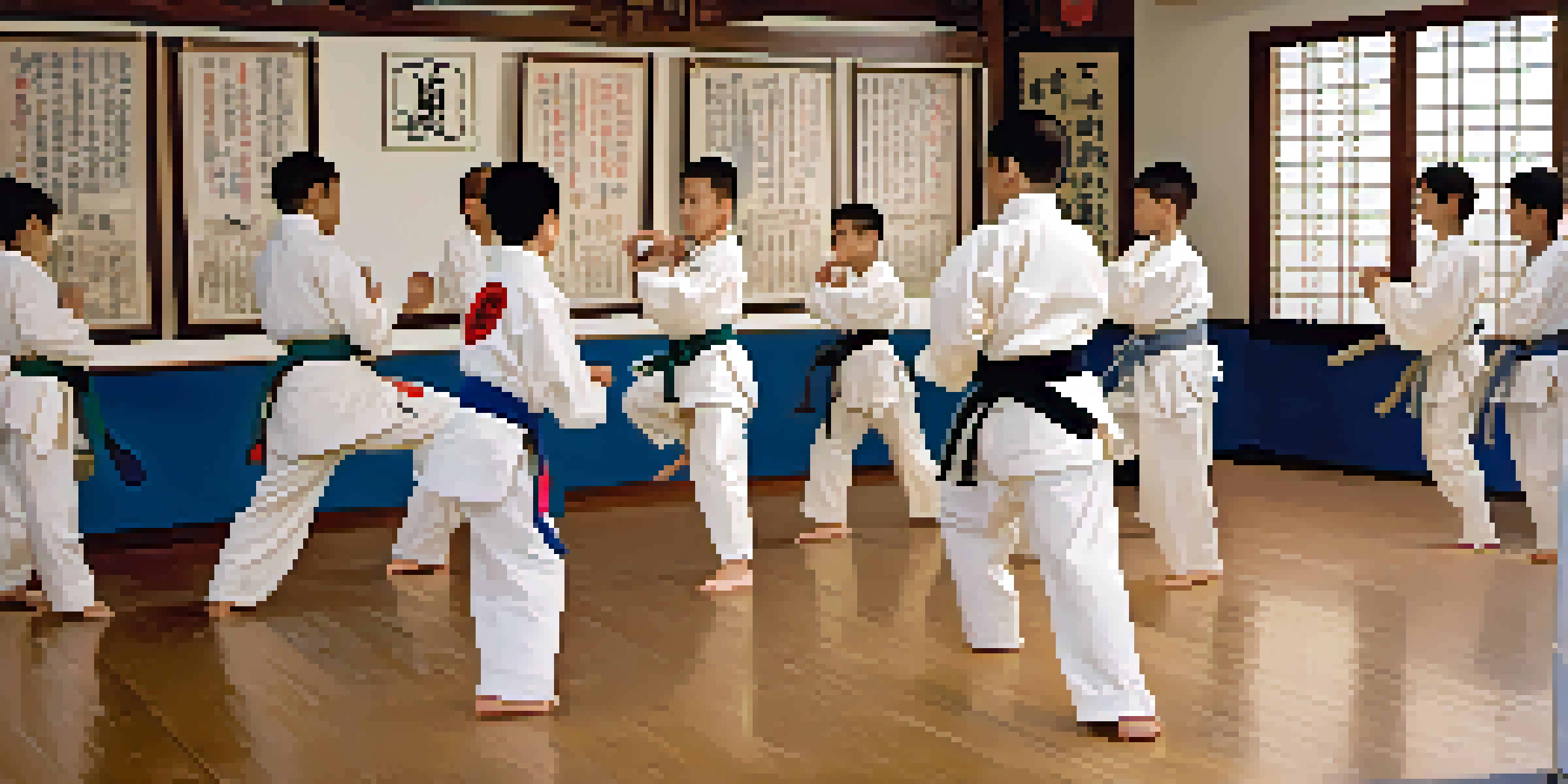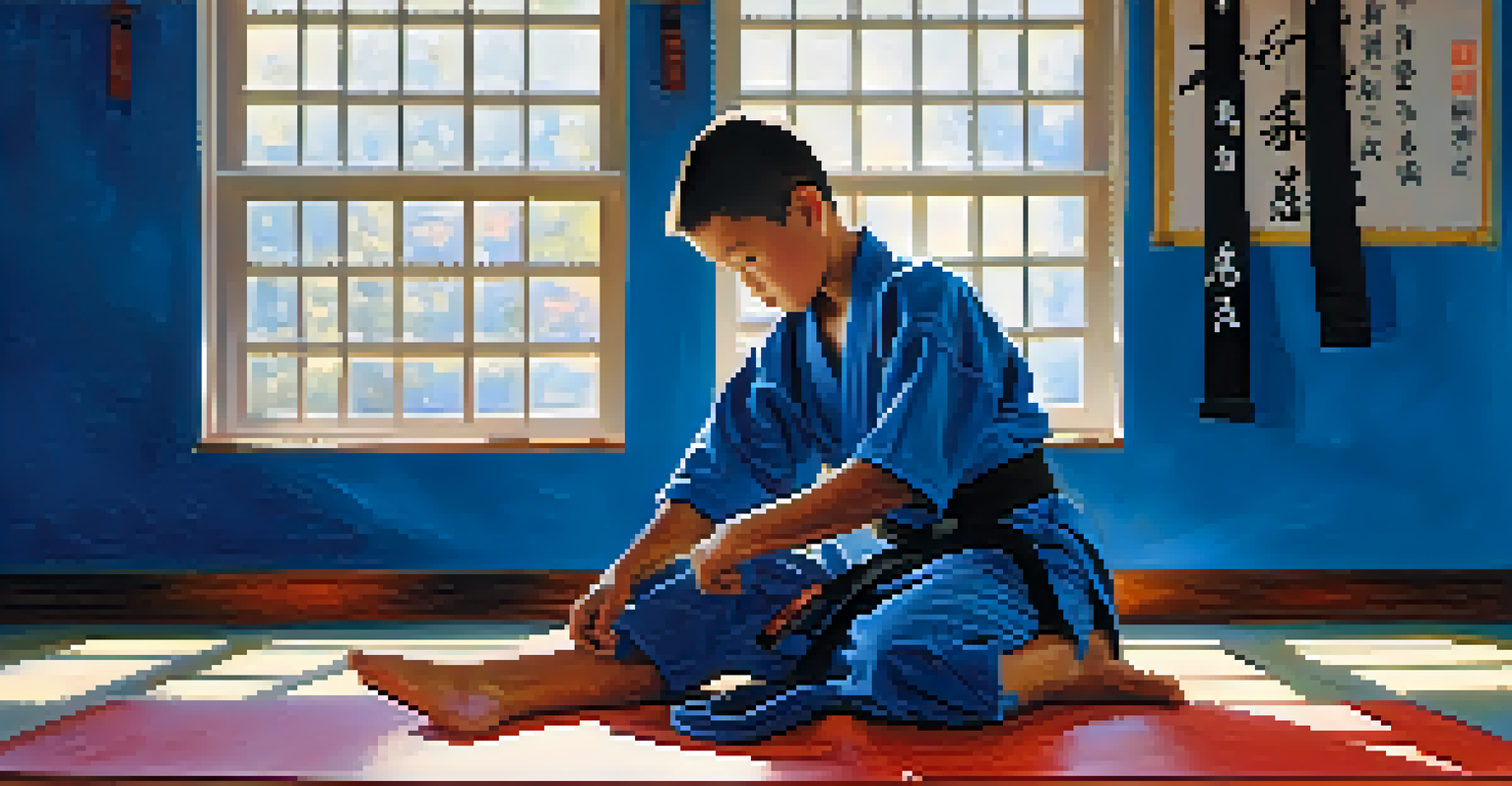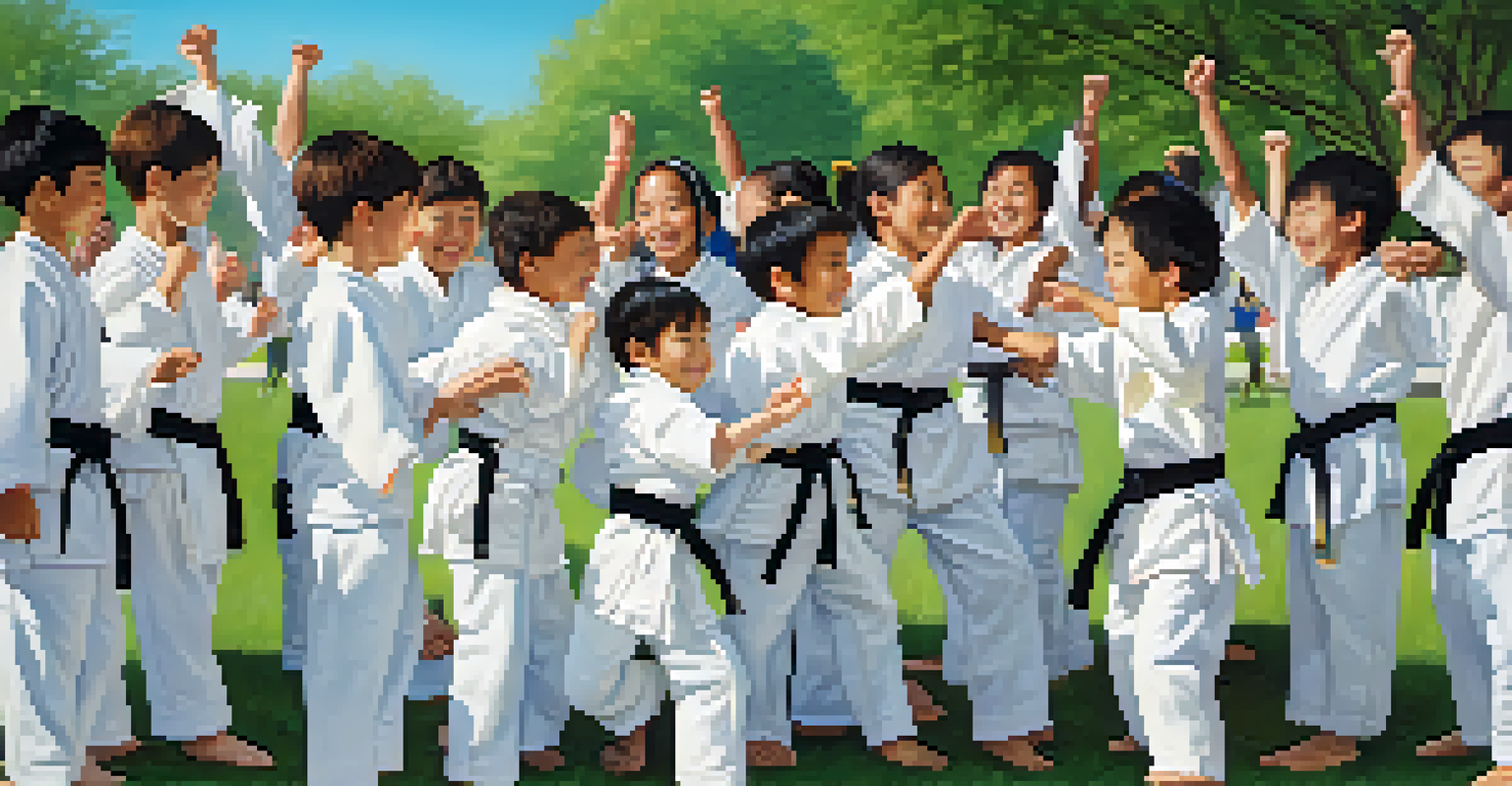The Importance of Discipline in Martial Arts for Youth

Understanding Discipline in Martial Arts for Youth
Discipline in martial arts is not just about physical training; it's a foundational skill that shapes character. For youth, this means learning to respect their instructors, peers, and the art itself. This foundational respect cultivates a positive training environment, encouraging personal growth and teamwork.
Discipline is the bridge between goals and accomplishment.
In martial arts, discipline involves adhering to routines, practicing techniques consistently, and striving for improvement. This commitment fosters a sense of responsibility in young practitioners, teaching them to set goals and work diligently towards achieving them. Over time, this structured approach can lead to significant personal achievements.
Moreover, the discipline learned in martial arts extends beyond the dojo. It becomes a life skill that aids in academic pursuits and personal relationships, helping youth navigate challenges with resilience. In essence, discipline lays the groundwork for a well-rounded individual.
Building Focus and Concentration Through Training
Martial arts training requires intense focus, which is a key component of discipline. Youth must learn to concentrate on their movements, techniques, and the instructions given by their instructors. This level of focus not only improves their martial arts skills but also enhances their ability to concentrate in school and other activities.

As students practice techniques repeatedly, they develop the ability to block out distractions and hone in on their objectives. This sharpened focus translates into better academic performance, as youth become adept at studying and completing tasks without succumbing to distractions. It's like training the brain to stay present, a skill that benefits them in all areas of life.
Discipline Shapes Character
Martial arts instills discipline in youth, teaching them respect, personal accountability, and responsibility.
Additionally, mastering the art of concentration can lead to increased confidence. When young martial artists see tangible improvements in their skills, it reinforces their belief in their abilities. This newfound confidence can empower them to approach challenges outside the dojo with a positive attitude and determination.
Teaching Respect and Humility Through Martial Arts
Respect is a core tenet in martial arts, where students learn to bow to instructors and fellow practitioners. This simple act fosters an environment of mutual respect and humility, essential qualities for young individuals navigating social dynamics. Understanding the importance of respect helps youth build healthier relationships both on and off the mat.
The only way to do great work is to love what you do.
Moreover, martial arts teaches youth to respect the journey of learning. They learn that progress takes time and effort, reinforcing the idea that mastery is a gradual process. This understanding nurtures humility, as they recognize that everyone, including themselves, starts as a beginner.
In a world that often emphasizes competition, martial arts provides a refreshing perspective. Youth learn that the journey is just as important as the destination, allowing them to celebrate small victories along the way. This balance of respect and humility shapes them into well-rounded individuals who appreciate the value of effort and perseverance.
Fostering Self-Discipline and Personal Accountability
Self-discipline is a crucial takeaway from martial arts training. Youth learn to hold themselves accountable for their actions, whether it's practicing consistently or maintaining good behavior in class. This sense of accountability empowers them to take charge of their own learning and development.
As students progress through belts and rankings, they experience firsthand the results of their hard work and dedication. This tangible outcome reinforces the idea that consistent effort leads to success, instilling a strong sense of self-discipline that can be applied in various aspects of life. It's like earning rewards for their perseverance.
Focus Enhances Life Skills
Training in martial arts develops intense focus and concentration, benefiting students academically and in daily activities.
Furthermore, self-discipline nurtures a proactive mindset. Youth begin to understand that they have the power to create their own opportunities, whether it's in martial arts or other pursuits. This realization cultivates a sense of agency, encouraging them to pursue their passions with determination and focus.
Enhancing Emotional Regulation Through Martial Arts
Martial arts training isn't just about physical prowess; it also plays a significant role in emotional regulation. Young practitioners learn to manage their emotions, particularly in high-pressure situations like sparring or competitions. This emotional control is a vital skill that fosters resilience and adaptability.
By engaging in rigorous training, youth experience a range of emotions, from frustration to joy. Learning how to respond to these emotions constructively helps them develop coping strategies that can be useful in daily life. For example, instead of reacting impulsively, they learn to pause, assess, and respond thoughtfully.
Moreover, martial arts encourages practitioners to channel their emotions into their training. This process not only enhances their skills but also provides a healthy outlet for stress and anxiety. Ultimately, mastering emotional regulation through martial arts contributes to the overall well-being of young individuals, helping them navigate life's ups and downs.
Instilling a Sense of Community and Belonging
One of the often-overlooked benefits of martial arts training is the sense of community it fosters. Youth not only train together but also participate in events, competitions, and group activities that strengthen their bonds. This sense of belonging is crucial for social development and emotional support.
In a martial arts class, everyone shares the same goal: to improve and support each other. This collaborative atmosphere encourages youth to lift each other up, celebrate successes, and provide encouragement during challenges. It's a microcosm of teamwork that prepares them for future social interactions in various settings.
Community Fosters Support
The sense of community in martial arts classes helps youth build valuable social skills and emotional support networks.
The friendships formed in martial arts often extend beyond the dojo. As students learn to work together and support one another, they develop valuable social skills that will serve them throughout their lives. This sense of community not only enhances their training experience but also contributes to their overall happiness and well-being.
Preparing Youth for Future Challenges and Success
The skills acquired through martial arts training are invaluable as youth transition into adulthood. Discipline, focus, respect, and emotional regulation prepare them for the challenges they will face in school, work, and personal relationships. These qualities are not only beneficial but often essential for success in various endeavors.
Moreover, the journey of martial arts teaches resilience. When faced with setbacks, such as failing to achieve a new belt or struggling with a technique, youth learn the importance of perseverance. This ability to bounce back from challenges equips them with a growth mindset, ready to tackle obstacles head-on.

As they grow older, the lessons learned in martial arts become guiding principles for their lives. The discipline they develop can lead to academic excellence, career advancement, and fulfilling relationships. Ultimately, martial arts not only prepares youth for immediate challenges but also lays the foundation for a successful and fulfilling future.